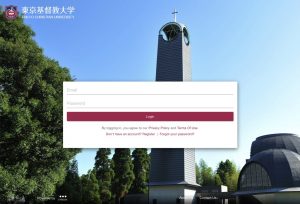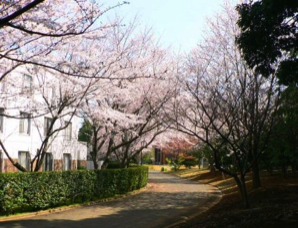Cost
Program Fees for 2023–2024
Fall Program (2023)
The 2023 fall program fee is US$8,950. The program fee includes tuition, room and board, five to seven field trips, Japanese language textbooks, rental bedding, national health insurance (see the section on insurance below), and other required fees.*
One-Year Program (Fall 2023–Spring 2024)
The 2023–2024 one-year program fee is US$17,450. The one-year program fee includes tuition, room and board, Japanese language textbooks, rental bedding, national health insurance (see the section on insurance below), and required fees. Students may also decide to come to TCU during any two of TCU’s three trimesters (Fall, Winter, Spring). In that event, the fee will be recalculated. Either way, this is a highly cost-effective way of studying at TCU.*
Winter/Spring Semester Fee
Winter and Spring Block Options
In addition to the above options, it is also possible for a student to come for only the Winter block or only the Spring block. The Winter block runs from early December to late February / early March. The Spring block runs from April to late June / early July. The block fee includes tuition, room and board, rental bedding, national health insurance (see the section on insurance below), and required fees. The block fee for 2023–2024 is US$6,350 per block.*
Notes
- TCU bills applicants from partner schools through the partner school based on a memorandum of agreement with each school. Fees may differ somewhat based on how a partner school treats the EAI Program as an extension of the school’s own global education program, how the school applies financial aid, and/or a number of other factors.
- The semester and year-long program fees all include three meals a day on weekdays (except holidays). For students enrolled in the Fall Semester program, the program fees also include meal expenses during fall break in late November, at which time the dining hall will be closed. For students enrolled in the Winter/Spring Semester, it does not include meal expenses for a two-week winter break in late December, and a three-week spring break in March, at which times the dining hall will be closed. The room fee for fall, winter, and spring breaks is included in the program fees. Books are not included for any of the terms (except for selected Japanese language texts), but the book fees are typically lower than at an American university. The prices do not include transportation to or from Japan, nor personal expenses. (See below regarding additional costs.)
- Field trips and the EAI Primary Courses are available only in the Fall Semester. It is to be further noted that, while the Winter/Spring semester can be broken into blocks (or halves), the Fall Semester is a unified package for EAI students and cannot be split into blocks.
Application Fee
The application fee is US$60. Applicants from partner schools are eligible for a fifty-percent discount (US$30).
Program Fee for Students from Biola University
Biola University and TCU have a special accord regarding EAI program fees. Biola students should contact the EAI Admissions Office for more information.
Additional Costs
Airfare To and From Japan
This cost varies considerably depending on the city of departure and return, dates of travel, time of purchase, airline, and so on. Ordinarily, students should purchase tickets to and from Narita International Airport. Some students, however, may wish to make private arrangements to visit other cities in Japan before and/or after their semester at TCU. All such arrangements will be each student’s responsibility.
Personal Travel Within Japan
Many of our students attend Sunday church services in and around Tokyo. Some students also enjoy trips into the city on Saturdays. Roundtrip train fare between TCU and downtown Tokyo costs approximately 3,000 yen. Students who wish to make private trips to other parts of Japan are advised to search the Internet for estimated costs.
Meals Taken Outside the Dining Hall
The dining hall is closed on Saturdays, Sundays, and on National holidays. It is also closed for a two-week fall break in late November, a two-week winter break in late December, and a four-week spring break in March. Students may prepare their own meals in the dorm when on campus. The cost of food is comparable to that in major cities in the U.S. and Europe.
Extra Spending Money
TCU recommends that students plan on approximately 5,000 yen (approx. 50 USD) per week for extra spending money. However, the amount will certainly vary from person to person, so students who tend to spend more conservatively may wish to wait about exchanging all of their money until they can reassess their spending needs (for example, after the first or second month).
Textbooks
Except for Japanese language textbooks, which are included in the program fee, students should prepare to bring any required textbooks. Once accepted, short-term students will have access to TCU’s syllabi online, where they can find the required texts for the courses they intend to take. Students are advised to purchase textbooks before coming to Japan, but it is also possible to order any necessary texts from within Japan.
Insurance
TCU will help each EAI student join Japan’s National Health Insurance upon arrival. The National Health Insurance will cover 70% of medical costs (i.e., doctor’s fees, hospital fees, prescribed medicines, etc.) and the student bears only the remaining 30% of the cost. The EAI program fee automatically covers the premium for this National Health Insurance plan, and TCU will pay this premium so that the student need not worry about having the National Health Insurance. It should be noted, however, that TCU does not cover the student’s 30% share of the cost of any medical treatment. The 30% remains solely the student’s responsibility.
Most of the partner schools offer internationally valid insurance for their students who participate in approved study abroad programs. At most partner schools, the Global Studies advisor can explain what is available from the home university. In some cases, the internationally valid insurance obtained from the student’s home university may cover all or a major portion of the remaining 30% of the medical fees that are the student’s responsibility in Japan. In addition, in some cases, the insurance through the student’s home school may cover emergency repatriation to the home country, “extraction,” and other expenses — none of which are covered by the Japanese National Health Insurance. All these matters, however, are strictly between the student and the home university. TCU has no connection with them. However, TCU will cooperate with the student in obtaining documents from Japanese doctors or hospitals, which may prove helpful or necessary for reimbursement from the American insurance company. This cooperation extends, however, only to those forms and documents which are standard in the Japanese health and insurance industries (for instance, it does not include translation fees of documents when these are not included in the standard set of documents).
It should be further noted that joining the Japanese National Health Insurance plan is a condition of participation in EAI and, again, that the cost is already covered in the EAI program fee. Japanese law requires students to join this plan regardless of any insurance that they may or may not bring with them from their home country.
Refund Policy for the East Asia Institute
Preliminary Definitions:
- Payment for the EAI program is due by the following dates:
Fall: Before August 1.
Winter and Spring Block: November 1.
Spring Block: March 1
- Schedule:
Fall: Starts towards the end of August
Winter: Starts towards the beginning of December
Spring: Starts towards the beginning of April
The Policy:
If a student cancels participation in, or withdraws from, the EAI Program:
- From Aug. 1, Nov. 1, and Mar. 1 until the first day of classes: 100% refund of the inclusive EAI fee except for a $350 cancellation charge*.
- From the first day of classes until 14 days into the EAI Program: 75% refund of the inclusive EAI fee.
- From the first day of classes until 28 days into the EAI Program: 50% refund of the inclusive EAI fee.
- After 28 days from the first day of classes: No refund.
* In the case of any refund, bank transfer fees will be deducted from the amount to be refunded. This includes fees incurred when receiving payment in Japan as well as fees incurred when sending the refund back to the student or his/her home institution. Also, the amount refunded may be adjusted depending on fluctuations in the exchange rate.
** If an applicant decides not to participate in the EAI Program before arriving at TCU, it will be treated as “cancellation.” If an EAI student decides to end participation in the EAI Program after arriving at TCU, it will be treated as “withdrawal.” An EAI student who withdraws from the program will be expected to move out of the dorm within 7 days of withdrawal. The student will be required to pay any room and board expenses incurred after the withdrawal deadline they select.
*** If an applicant’s visa application is denied, 100% of the inclusive EAI fee will be refunded.


